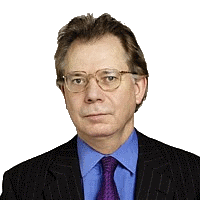2007
Keynes, the Keynesians and Monetarism (Source: Edward Elgar) ... continued
Introduction: what were (and are) the debates all about?
PART ONE: Keynes and the Keynesians
1. Were the Keynesians loyal followers of Keynes?
2. What was Keynes's best book?
3. Keynes, the Keynesians and the exchange rate
PART TWO: The So-called 'Keynesian Revolution'
4. Did Britain have a 'Keynesian revolution'?
5. Is anything left of the 'Keynesian revolution'?
PART THREE: Defining British Monetarism
6. The political economy of monetarism
7. British and American monetarism compared
PART FOUR: The Debate on the 1981 Budget
8. Do budget deficits 'crowd out' private investment?
9. Did the 1981 Budget refute naive Keynesianism?
10. An exchange 25 years later between Professor Stephen Nickell and Tim Congdon
PART FIVE: Did Monetarism succeed?
